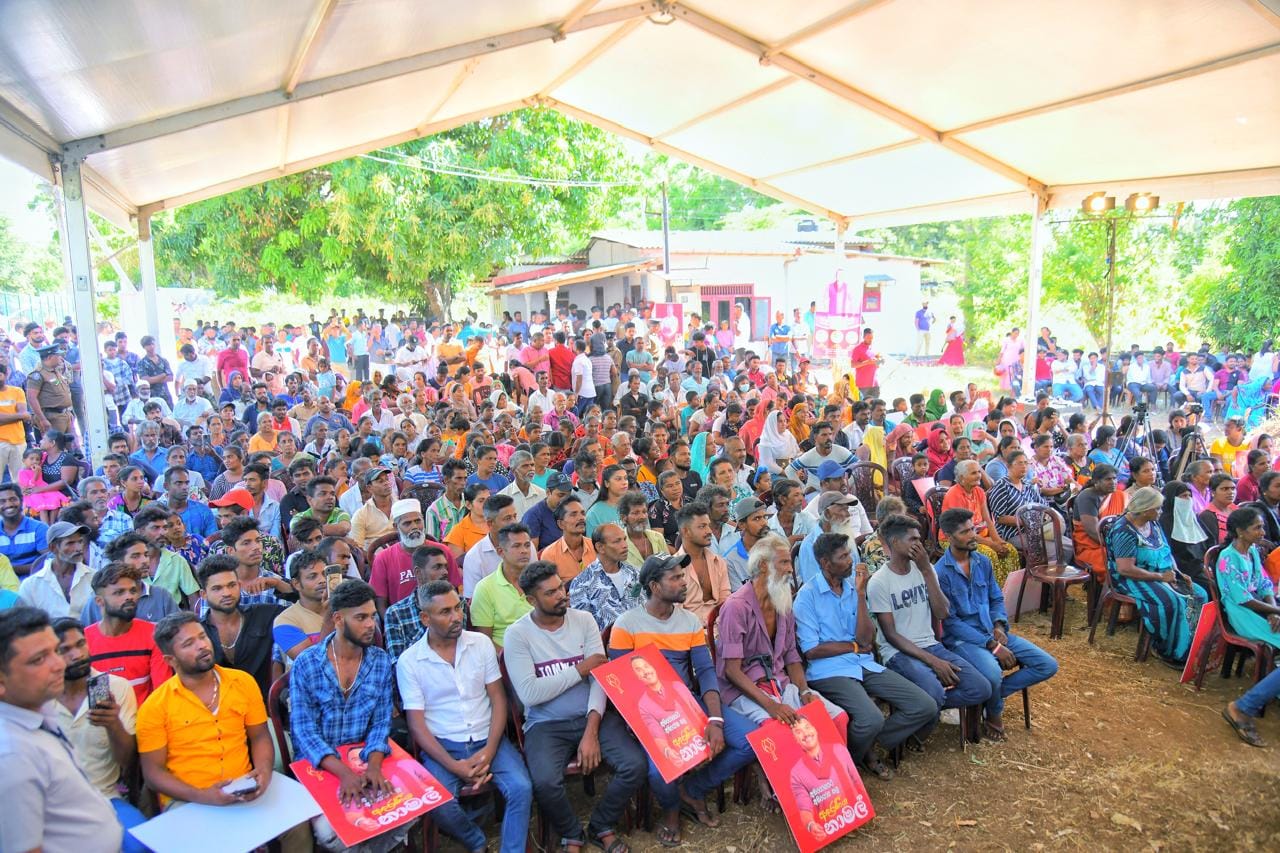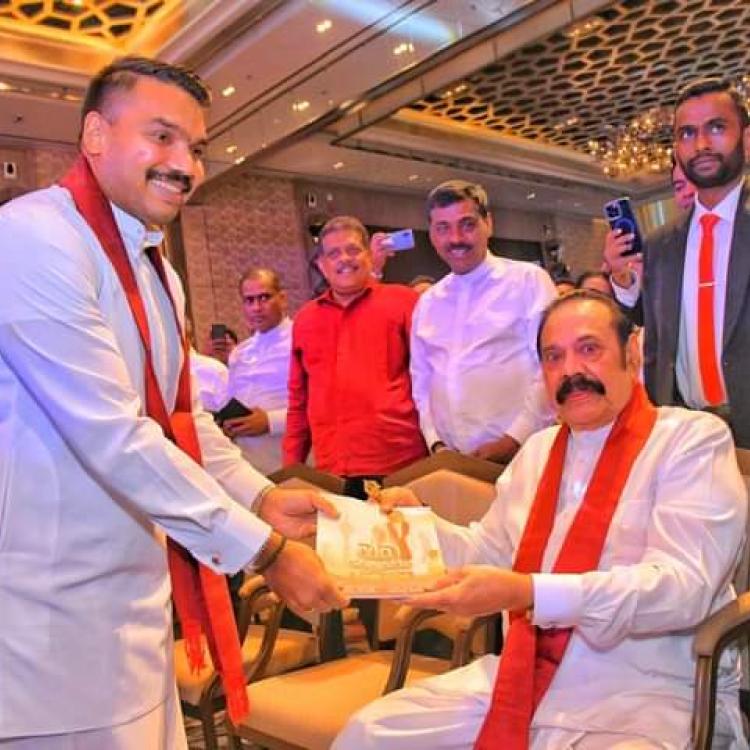
Sri Lankan presidential aspirant Namal Rajapaksa, son of accused war criminal Mahinda Rajapaksa, firmly stated that there would be no merger of the North and East, nor would land or police powers be granted under a Sri Lanka Podujana Peramuna (SLPP) government.
During a media briefing in Jaffna, Rajapaksa reiterated his stance against merging the North-East and granting land and police powers, stating, "The Buddhist nation protects all religions, languages, and communities," and assuring that the "SLPP would never betray the country or the party for privileges or positions."
Rajapaksa is currently touring the North-East ahead of Sri Lanka’s presidential polls scheduled for later this year.

Despite refusing to devolve power to Tamils, Rajapaksa claimed he would ensure that the Jaffna peninsula would be transformed into a technology and business hub. "With its harbor, airport, and proximity to India, Jaffna is in a prime position for growth,” he said. “However, many current political discussions are bogged down in abstract issues rather than tangible solutions."
At the launch of his manifesto, Rajapaksa promised to continue the work of his father, Mahinda Rajapaksa, who oversaw the genocide of tens of thousands of Tamils in 2009.
"By integrating sustainable solutions for the challenges of the 21st century and the modern technological revolution with Mahinda Chinthana, let us start again from where the development of this country was stopped," he said, vowing to rescue the country from its current economic crisis, just as his father "liberated and united a country torn apart by war," he told a gathering in Colombo earlier this month.
However, Rajapaksa avoided addressing specific strategies for the North-East, including critical issues such as land grabs, Sinhalization, Buddhization, or the ongoing intimidation and arrests that impact the daily lives of Eelam Tamils. Instead, his manifesto mentions a plan for establishing a museum and a library for future generations to learn about the "humanitarian war against terrorism that hindered the development of this country for 30 years," but notably omits any commitment to justice and accountability for the atrocities committed by the Sri Lankan state.


